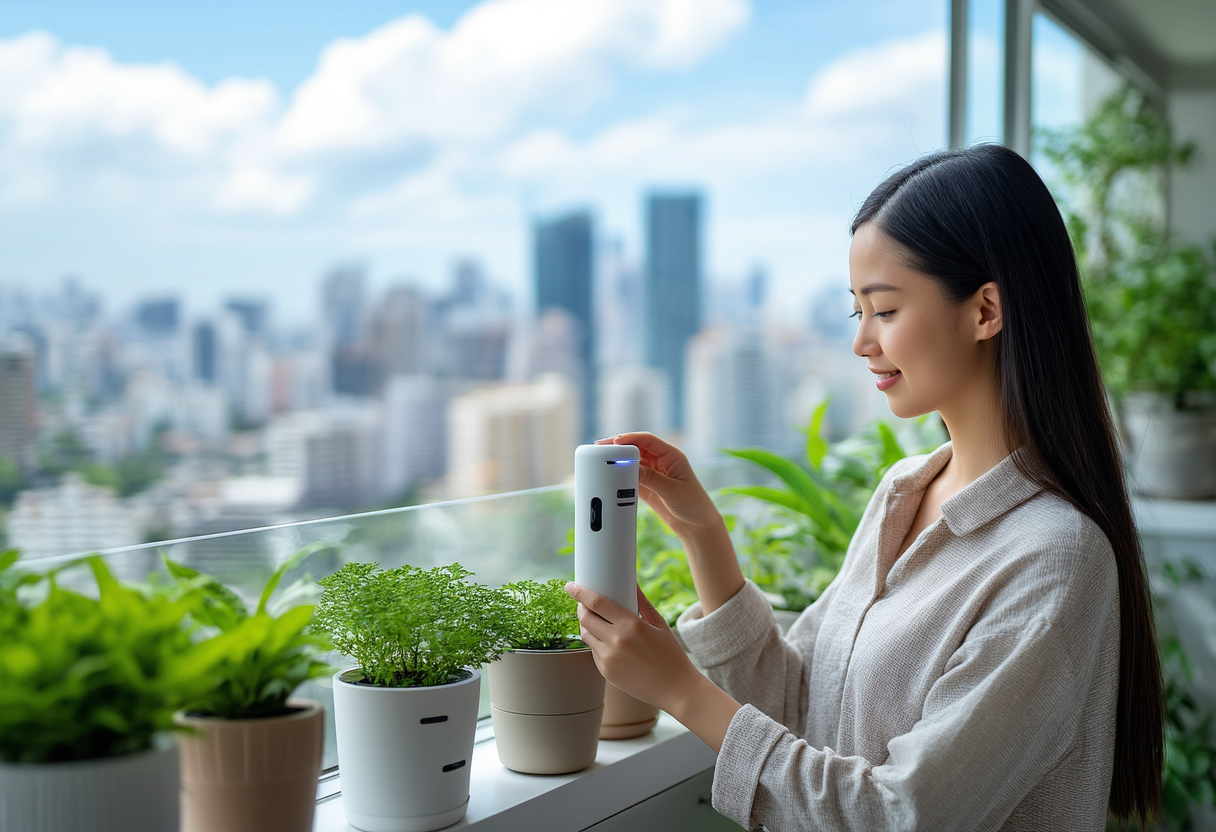The Impact of Smart Home Gardening Tools on Urban Agriculture
Smart Home Gardening Tools are reshaping urban agriculture by making gardening more accessible and efficient. These tools utilize technology such as sensors and automated systems to streamline plant care and monitoring. As urban spaces become more populated, these tools play a crucial role in promoting sustainability and local food production. This article explores the various types of Smart Home Gardening Tools, their benefits, and how they contribute to the broader trend of urban gardening.
The Role of Smart Home Gardening Tools
Smart Home Gardening Tools have emerged as transformative devices for urban agriculture. These tools enable anyone, regardless of gardening experience, to cultivate plants successfully in limited spaces. By employing technologies such as moisture sensors and self-watering systems, these tools take the guesswork out of gardening. Additionally, many devices are designed for ease of use, making them suitable for urban dwellers with busy lifestyles. The ability to monitor plants remotely via mobile applications provides a level of convenience previously unattainable. As cities face challenges related to food security and environmental sustainability, Smart Home Gardening Tools are becoming essential for urban agriculture. They allow individuals to grow fresh produce and reduce their carbon footprint by minimizing transportation needs associated with store-bought food. The convenience and effectiveness offered by these tools undoubtedly enhance the urban gardening experience.
Exploring Different Types of Smart Home Gardening Tools
There is a wide range of Smart Home Gardening Tools available, and each serves a unique purpose in the gardening process. Hydroponic systems that require minimal soil are ideal for urban settings, as they optimize space while maximizing growth. Automated plant care devices, such as the Grow Sphere, allow users to monitor everything from nutrient levels to humidity, making gardening more manageable. Smart lighting solutions also play an integral role, helping plants receive the right amount of light without relying on natural sunlight. Furthermore, connected devices can send notifications and advice on optimal care practices, enhancing users' gardening knowledge and capabilities. The diversity of Smart Home Gardening Tools enables people with various preferences and expertise levels to engage in urban agriculture actively. Overall, these tools not only make gardening more efficient but also more enjoyable for all users.
The Environmental Benefits of Smart Home Gardening Tools
In addition to enhancing user experience, Smart Home Gardening Tools contribute to environmental sustainability. By allowing users to grow their food, these tools promote local food production and reduce reliance on commercial agriculture. As consumers become increasingly aware of the environmental impact of food transportation, the ability to grow produce at home becomes a compelling alternative. Moreover, smart gardening tools are designed to optimize water and nutrient usage, leading to less waste. Many of these systems incorporate features that monitor resource consumption, allowing users to adjust their gardening practices accordingly. Through efficient management of resources, individuals can cultivate healthier plants while conserving essential inputs. Consequently, Smart Home Gardening Tools play a crucial role in encouraging environmentally responsible gardening practices, fostering a more sustainable urban landscape.
Addressing the Challenges in Urban Gardening
Despite the numerous advantages, urban gardening does come with its challenges. Space limitations can make it difficult to grow certain types of plants, and not everyone may have access to outdoor areas. Additionally, potential pests and diseases can threaten indoor and outdoor gardens alike. Smart Home Gardening Tools can help mitigate these issues by providing timely alerts and recommendations for pest management. Advanced tools may also offer features such as disease diagnosis, enabling users to detect and address problems early. The technology embedded in these tools can make urban gardening accessible to individuals of all skill levels, transforming challenges into opportunities for learning and growth. By addressing common gardening hurdles, Smart Home Gardening Tools foster resilience in urban agriculture.
The Future of Urban Agriculture
As the trend of urban gardening continues to surge, the future of Smart Home Gardening Tools looks bright. Innovations in technology are likely to lead to more sophisticated tools that provide deeper insights into plant health and growth patterns. Collaborative gardening initiatives will likely rise, prompting further community engagement in urban agriculture. The evolution of Smart Home Gardening Tools will inspire more people to embrace gardening as a meaningful and fulfilling activity. Whether for sustainability, economic benefits, or personal satisfaction, the importance of Smart Home Gardening Tools in urban agriculture cannot be overstated. By harnessing technology's power, urban dwellers can significantly contribute to a greener future while enjoying the many rewards of gardening.
Conclusion: The Shift Towards Smart Gardening
In summary, Smart Home Gardening Tools are crucial in shaping the future of urban agriculture. These tools not only simplify gardening practices but also promote sustainability and local food production. While challenges exist, the benefits they offer make them invaluable for urban gardeners. As technology continues to advance, we can expect to see even more innovations that enhance this growing sector. Ultimately, the integration of Smart Home Gardening Tools signifies a significant shift towards more sustainable and engaged urban living.
The incorporation of technology into gardening practices opens new doors for urban agricultural development and personal health.
